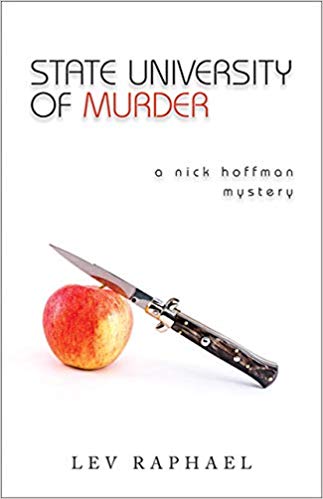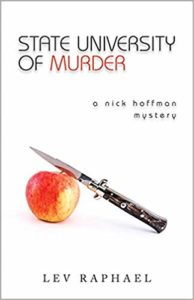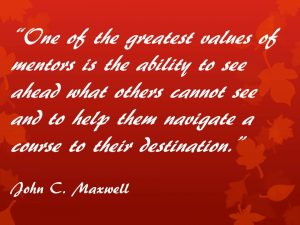The famous New York editor who helped launch my book publishing career, Michael Denneny, is dead. He was a founding editor of the highly influential magazine Christopher Street, and in 35 years at Macmillan, St. Martins Press, and Crown published major authors like Edmund White, Susan Fromberg Schaeffer, and Buckminster Fuller while championing gay fiction and nonfiction.
I’d been publishing stories for over a decade before approaching this giant of LGBTQ publishing at St. Martin’s Press with a collection of gay stories, but he thought it was incomplete. He knew my work and asked, “Why don’t you bring all of yourself into the book: you’re gay, you’re Jewish, and you’re the son of Holocaust survivors. Nobody has ever written a book quite like that.” He was right, and we launched a beautiful partnership when he offered me a contract for the book that became Dancing on Tisha B’Av.
That book put me on the map, with dozens of reviews across the country and the Lambda Literary Award it won the year after publication. I’m the figure on the cover. I was doing heavy weights at the gym and Michael thought pairing my body with a skull cap would hit the right notes. It did. Another well-known editor, the late George Stambolian, told me it was “the cover of the year.”

Denneny had started at St. Martin’s Press in 1977 when there wasn’t a single mainstream publisher in New York bringing out gay books. He soon became celebrated as the doyen in that field for hardcover originals and his line of Stonewall Inn Editions, handsomely produced paperbacks of gay fiction and nonfiction.
Michael was an amazingly hands-on editor. He had me bring copies of dozens of stories to New York and we sat on the floor in his bohemian living room and looked at what might fit, what could be left out, what order the stories should take to seduce and enthrall readers. But that wasn’t the end: he and I spent easily seven months after that going back and forth with revisions as he helped me hone each story to make it as clear and forceful as possible. It was a master class in editing and revision, and his insights were never short of brilliant. He’s one of the many editors who have helped me enormously in my career as a teacher and editor myself—and one of the best.
Here’s an example of his help: I had shied away from writing sex scenes, but he said that sex revealed a side of characters that couldn’t be known in any other way and especially with characters who were venturing into new territory, so it was important for me to follow them. I did. The book was a success, winning a Lambda Literary Award after receiving dozens of reviews, most of them adulatory.
Michael admired my sense of humor and urged me to write a mystery series with a Nick and Nora Charles feel. That’s how the Nick Hoffman mysteries were born and that’s how I started getting reviewed in the New York Times Book Review, ended up as a professional reviewer for newspapers and radio stations, got invited around the country and abroad to speak about my work, and saw professors take me on an as a subject for academic essays, papers, and book chapters.
Without Michael, I doubt that Special Archives at Michigan State University’s Library would have pursued my papers for a decade and finally purchased them for a hefty sum.
It’s not self-serving to say that his taste was superb and he didn’t just publish major gay writers, he published Ntozake Shange—and she’s the writer who apparently encouraged him to publish gay authors. I remember Michael made a prediction about my career. He said, “You might never have a best seller, but like Shange, you’ll be making a lot of money doing speaking engagements because people will want to hear you speak from your unique perspective.”
He was right. I’ve done hundreds of invited talks and readings across the U.S. and in Canada, Germany, Scotland, England, France, Belgium, Italy and Israel. Without his intense belief in the value of my work—and its quality—I might never have gotten this far.
Or felt so very grateful.




